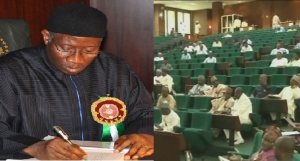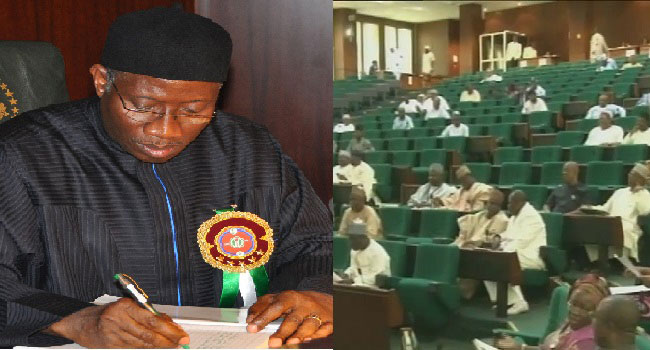
The rescheduling of the hearing date was done to ensure the resolution of the face-off between the National Assembly and President Goodluck Jonathan over the dispute on the legality of the Fourth Alteration Bill for the amendment of the constitution which the President had refused to sign into law.
The apex court had earlier adjourned the suit between the two parties to June 19, when the current National Assembly would have ceased to exit.
The National Assembly through its lawyer, Mr Adegboyega Awomolo, had appealed to the Supreme Court to have the case re-listed for hearing before the expiration of the tenure of the current National Assembly.
A copy of the new hearing notice, which was obtained by Channels Television reads: “Take notice that the above motion will be listed for hearing before the Supreme Court of Nigeria sitting in Abuja on Monday, 25th day of May 2015”.
The National Assembly is asking the apex court to discharge the interlocutory orders of injunction made on May 7, which barred the lawmakers from overriding the President’s veto.
In the application, they are also asking the court to dismiss the originating summons filed by the Attorney General of the Federation, Barrister Mohammed Adoke, on the grounds that: “the originating summons dated April 22 is incompetent, fundamentally and incurably defective and thereby robs the Supreme Court of its jurisdiction”.
They also argued that “there is no known or reasonable cause of action disclosed in the originating summons to ground jurisdiction of the Supreme Court”. They claimed that it was improper and a reckless invocation of the original jurisdiction of the Supreme Court.
They also insisted that the Attorney General was not competent to invoke the original jurisdiction of the apex Court under the Supreme Court Act.




